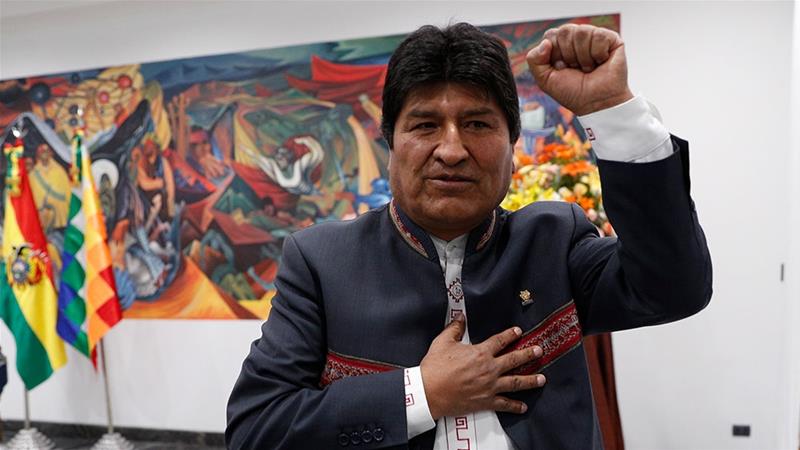LA PAZ, (Reuters) – Bolivian President Evo Morales today vowed to hold a run-off election if an audit of a vote count that handed him an outright win finds evidence of fraud, as he sought to calm a sixth day of protests and international criticism over his disputed re-election to a fourth consecutive term.
Morales railed against the opposition in a regional stronghold of support for his leftist government. He said his rivals were “envious” of his achievements after 14 years in office and accused them, without providing evidence, of trying to stir up unrest to try to unseat him illegally.
But he appeared worried about his reputation abroad as international election observers and foreign governments cast doubt on the legitimacy of his win.
So far, only Venezuela, Cuba and Mexico have sent him their congratulations, while the European Union and some of the region’s largest countries – the United States, Brazil, Argentina and Colombia – have pushed him to hold a run-off vote with chief rival Carlos Mesa to restore credibility to Sunday’s election, the tightest since 2002.
“I invite the foreign minister of Argentina, the foreign minister of Brazil, the foreign minister of Colombia plus the United States to come – let’s do an audit vote by vote,” Morales said in a speech before military brass in the coca-growing region of Cochabamba.
“I’ll accompany (the audit). If there’s fraud the next day we’ll convene a second-round” election, Morales added in comments broadcast on state TV.
Protesters blocked roads in parts of the highland capital of La Paz on Saturday for a second day. An indefinite strike against his government continued in the city of Santa Cruz, an agricultural and industrial center where opposition to him has long been strong.
Morales is already Latin America’s longest-serving president. He ran for a fourth term this year in defiance of term limits and a national referendum that rejected lifting them, after a court ruling gave him a green light.
The country’s embattled electoral board, the Supreme Electoral Tribunal (TSE), has denied charges of electoral fraud lodged by the opposition. The accusations were fueled when the board abruptly halted publication of a quick vote count that showed Morales headed to a second-round vote with Mesa.
When the quick count resumed, it confirmed Morales’ prediction on Sunday that he would secure the 10-point over Mesa in a crowded race of nine candidates, enough to avoid a riskier run-off race with the opposition more united behind Mesa.
The final vote count by the TSE showed Morales had 47.08% of votes to Mesa’s 36.51%. The TSE and Morales have said they welcome an audit by the regional group the Organization of American States (OAS), but have not specified if they will accept its condition for its conclusions to be legally binding.
Brazil, landlocked Bolivia’s biggest trade partner, has gone the farthest in turning up pressure on Morales, warning it would not recognize the results until the OAS finishes an audit of the vote count.

